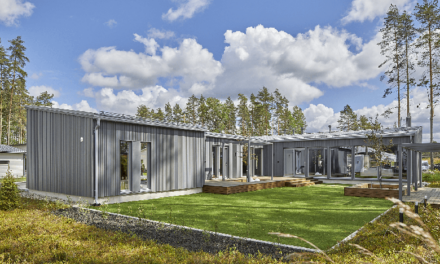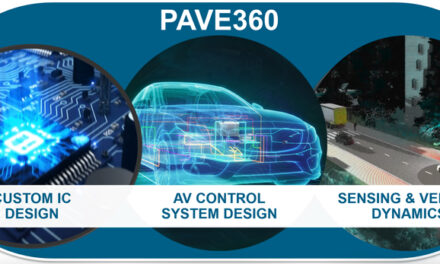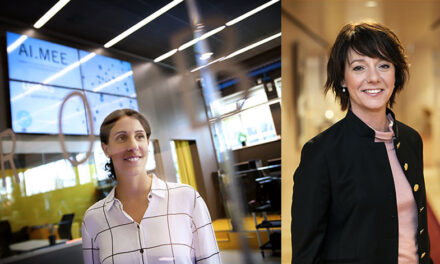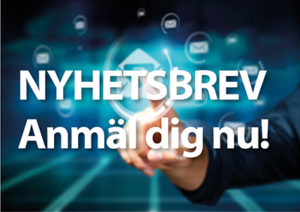Where AV meets IoT: Ideal for corporate and educational environments, the award-winning Crestron XiO Cloud platform allows customers to deploy, monitor, and manage their Philips OPS displays from a centralised location, reducing installation time and increasing uptime.
Part of PPDS’ unparalleled adoption of Crestron’s full ecosystem for seamless end user experiences, this unique and highly collaborative partnership opens up incredible opportunities for a multitude of industries – including corporate, education, hospitality, retail and others – with PPDS bringing the most advanced and complete version of the award-winning XiO Cloud control and management solution available anywhere in the current market.
Fuelled by a joint desire to bring scalable, transformative and future-proof solutions to meet the ever-changing needs and demands from the market, this deep collaboration between PPDS and Crestron brings the greatest levels of integration and support to the Crestron ecosystem from a display manufacturer. Driving productivity and long-term financial gains for customers and enabling them to maximise the benefits and capabilities of both companies’ award-winning solutions.
With Crestron technology now embedded and compatible across almost all Philips professional displays (including pro TV, digital signage and interactive), PPDS has become one of the world’s few display manufacturers to support all four of Crestron’s key technology integrations, including its Control, Remote Management, Video Distribution and Unified Communications solutions.
Bob Bavolacco, director, technology partnerships at Crestron, commented: “PPDS has become a deeply integrated Crestron partner, adopting and rapidly embracing our technology at a level that surpasses anything else seen in the current marketplace.”
Future-proofing the workplace
First unveiled at ISE 2018 as part of Crestron’s ‘AV Matrix for the IT Age’ range of enterprise solutions, the ever-evolving Crestron XiO Cloud makes the ability to deploy, manage, monitor and evolve your workplace displays a simple, fast and secure process, enabling remote control of the display’s functions from a single location (including via a Crestron touchscreen device or a web UI dashboard).
Effortless installation
With Crestron XiO Cloud, the long, often costly and disruptive configuration process for new displays and other devices is now a thing of the past, with customers able to centrally configure and provision all their Philips professional displays (and other compatible solutions) in all rooms before the products have been installed and without visiting the site. This can cut installation times for new devices by up to 90pc.
Once displays are connected to the network, they will automatically retrieve their settings, programmes and firmware specific to the environment being used, and immediately begin reporting data. With Crestron XiO, customers can configure thousands of Philips professional displays in the time it takes to configure one – no programming and no hassle.
Powering evolution / Endpoint management
With Crestron XiO Cloud, updates can be scheduled on individual displays or collectively, entirely remotely and at a convenient time – such as during non-office hours – or staggered across rooms’ usage or occupancy (never more visible on XiO Cloud, see below), for greater levels of efficiency, consistency and security to the workplace.
Troubleshooting can also be tackled immediately and entirely remotely, with Crestron XiO Cloud monitoring all devices at all times, sending AV/IT managers instant alerts whenever an issue is detected. This allows problems to be addressed as and when they occur – even before the user realises – reducing potential disruptions or equipment shutdowns to keep spaces up and running, without running to them.
Workplace analytics
With rooms and devices automatically monitored 24/7, Crestron XiO Cloud’s workplace analytics helps give managers better understanding of how rooms and systems are being used. These include system usage versus occupancy, and new people counting functionality to understand how many people are actually using rooms versus their current capacity.
This could potentially solve issues around meeting room availability, depending on the technology user’s needs.
Tim de Ruiter, International Business Manager, PPDS, commented: “Space and the availability of meeting rooms can be a challenge for many working in busier offices, and finding one that features the equipment you need for a successful meeting can be timely and frustrating.
– It doesn’t have to be that way. If you can see that someone uses a room, say, every Tuesday at 3pm, but does not use their display, then their needs clearly do not match the facilities in the room. So, they could potentially have the same experience elsewhere, instead of depriving someone else of its true value. This can be simple to manage in a smaller office but in one with many different staff, working across multiple floors, it can be frustrating and time consuming. With Philips professional displays and Crestron XiO Cloud, these problems can be identified and mitigated.”
Every second counts
 AV/IT managers are able to configure the technology used in a room to conform to the exact users’ needs and requirements before they even enter it – whether that’s a one-off need, or, for example, successive meetings taking place daily, monthly or even annually, cutting or removing set up time delays.
AV/IT managers are able to configure the technology used in a room to conform to the exact users’ needs and requirements before they even enter it – whether that’s a one-off need, or, for example, successive meetings taking place daily, monthly or even annually, cutting or removing set up time delays.
According to research, the average delay per meeting for employees is approximately 10 minutes and 40 seconds, equivalent to 3 days and 2 hours lost annually, while 40pc of workers waste up to 30 minutes just searching for a collaborative space for meetings.
The cost of poorly organised meetings in 2019 was estimated at $399 billion in the US in 2019 alone and $58.11 billion in the UK.
Part of PPDS’ focus on sustainability, displays can be programmed to automatically power down during the hours they are not scheduled to be used, helping businesses to become more energy efficient, cutting costs and extending the lifetime of the product.
Customers can purchase the Crestron XiO Cloud service on a monthly basis, with pricing based on the number of rooms and service options you require.
Bob added: “The industry has evolved quickly in recent years. Analogue to digital, isolated to networked and server-based to Cloud-based. While technology has moved on, though, some of the historic problems, pains and frustrations have remained. Rolling out hundreds of displays and devices reliably and quickly can be very time consuming and a sizable investment. Even fairly simple but important updates can result in disruptions or even complete shutdowns, costing the company time and money.
– Depending on the size of the company, it can also be difficult to keep track of the technology available in each room, how occupied rooms are, and how often that technology is even used. With XiO Cloud and working closely with PPDS, we’ve created an entirely new approach, bringing AV and IoT together to Philips professional displays to create smarter working and learning environments.
Sian concluded: “By supporting different product lines and continuing to develop in the Crestron ecosystem we provide our customers with scalable future-proof solutions that meet all their different needs. This is yet another major milestone in our journey in combining best-in-class technology with world-leading third party solutions partners, in order to best serve our customers and help them be the best they can be.”







